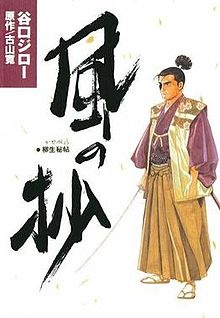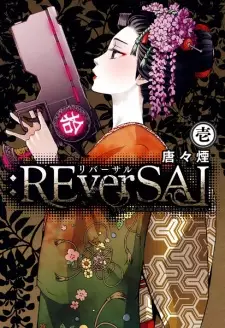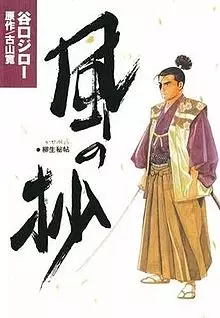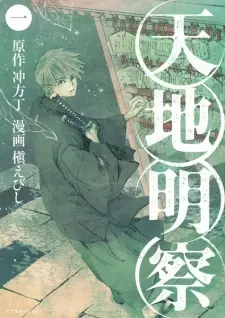Feb 26, 2023
Yagyuu Jubei has become an almost mythical figure in Japanese history by now, alongside the feudal lords from the Sengoku period. However, he was undoubtably real, as were his contributions to both swordfighting and the philosophy behind it. This book, while incorporating some of the myths, presents a fairly grounded and realistic portrait of the man himself.
It starts with the theft of the so-called Yagyuu scrolls, three books that the Yagyuu family had stashed away in a secret place. Two of them deal with the Yagyuu sword style and the philosophy behind and around it, but the third one is the real problematic one: allegedly,
...
it's a historical record of the Tokugawa shogunate's ruling and allegedly, it's meticulous and entirely accurate, meaning that if this record goes public, the Tokugawa shogunate is done for - they've done a lot of questionable or even outright cruel and evil things, all to keep their rule stable and otherwise uneventful. These scrolls being what they are, they need to be recovered at all costs.
The mastermind behind the theft is quickly found: it's the current Emperor Go-Mizunoo. Ambitious and proud, he is greatly frustrated at his role as nothing but a figurehead that props up the shogunate, and dreams of restoring the position of Emperor to its former glory, likewise at all costs, even if that means war again.
Aiding him is a former shinobi clan that fell out of favor and was reduced to almost-outcasts, having to become traveling performers to survive. Their young scion Yashamarou, a martial arts prodigy in his own right, also dreams of stepping out of the shadows and securing their place in society, and in his righteous anger appoints himself Yagyuu Jubei's bitter rival, intent on slaughtering his way through, if necessary, even while Jubei himself is working through his dilemma of not wanting to kill his enemies while needing to fight nevertheless. Everything leads up to the decisive duel over the Yagyuu scrolls.
Which is probably one of the myths incorporated here. I'm not familiar with Japanese history, but even a simple research on Jubei himself will reveal quite a few historic inaccuracies, like how he lost his eye, for example. It becomes clear early on that Kan Furuyama's focus was not on a hyper-accurate retelling of Jubei's life, his focus was on painting an accurate portrait of the man and what made him tick (and how and why). And, like I wrote at the start, it's fairly grounded and probably realistic. Jubei is not some sort of superhuman or one-man army, he's just a single, but capable man who needs to rely on others as much as the others rely on him. He's not simply a secret agent, he's not simply the scion of a martial arts school, he's not simply a daimyo's son, he's all those things at once and he has his own thoughts on all those matters.
However, this is not a dry character study - that would be boring. This is more of a period drama, using sequential art as a medium instead of film - and Jiro Taniguchi does well. He was always at his greatest doing quiet, contemplative work - and this is no different - but he manages to convey strong emotions as well. When Jubei prepares himself to fight off random followers of some out-of-grace daimyo, you see the danger radiating from him. When Yashamarou charges in, you feel the anger and fury that drives him. And when Yagyuu Munenori ruminates on the importance of stability, even through questionable means, you see his son Jubei ruminate on it, too.
And yet, while Taniguchi does well, he doesn't exactly do great. This is one of his earlier works, and it shows here - the art is still more or less strongly reminiscent of European and American artists, and while a distinct style of drawing faces is already present, the backgrounds still needed some work, they feel sort of generic. Sure, there are some great still landscape panels, but they are few in number, and they only serve to set the tone. The bulk of the backgrounds are much simpler, and, well, feel sort of generic. And while Taniguchi had mastered stills and simple action by then, chaotic action or battles with a big number of people involved feel clunky and hard to follow. Unfortunately, there's much more of this towards the ending, so some readers might feel disappointment at how a pretty great buildup falls so flat here.
Furuyama is not without fault, too - his focus on people, their philosophies and motivation is steady most of the time, but not all the time. At several points he introduces characters and events of importance without doing anything with them, losing the point in doing this. I guess it's a good thing to learn that the great Matsuo Basho lived around that time, too, but the way this is presented, it becomes nothing but a piece of trivia. And while the idea behind framing the whole story as something the early Meiji politician Kaishu Katsu tells his eager followers so that they may learn from it is understandable, it's not exactly necessary.
Even so, this work is worth picking up and reading, both if you're interested in Jubei Yagyuu in particular and if you're interested in Japanese history in general. The book may not be fully devoid of myth, but it still represents Jubei much better than most popular entertainment made about him.
Reviewer’s Rating: 6
What did you think of this review?
Nice
 0
0
Love it
 0
0
Funny
 0
0
Confusing
 0
0
Well-written
 0
0
Creative
 0
0Show all



.png)






















